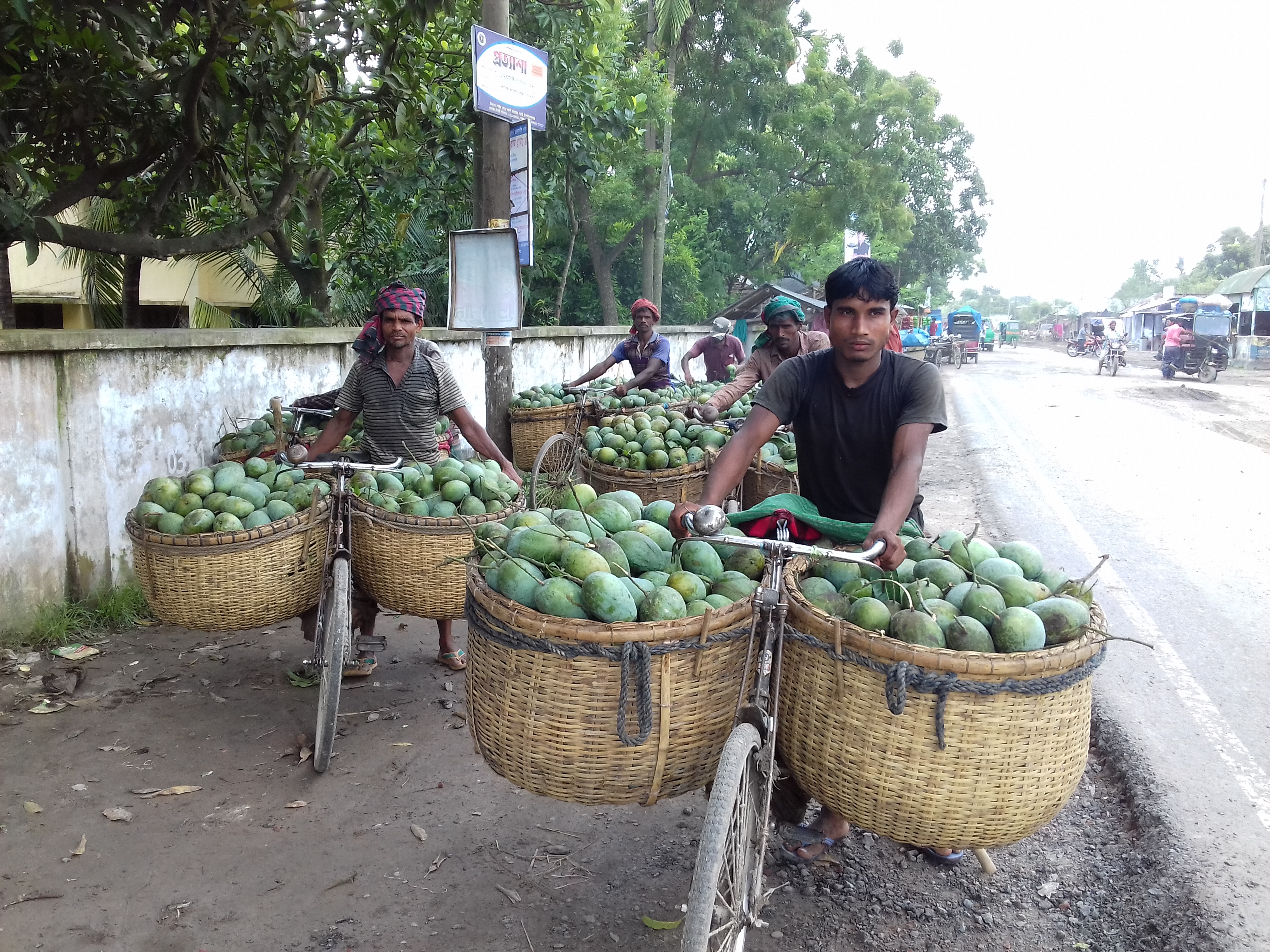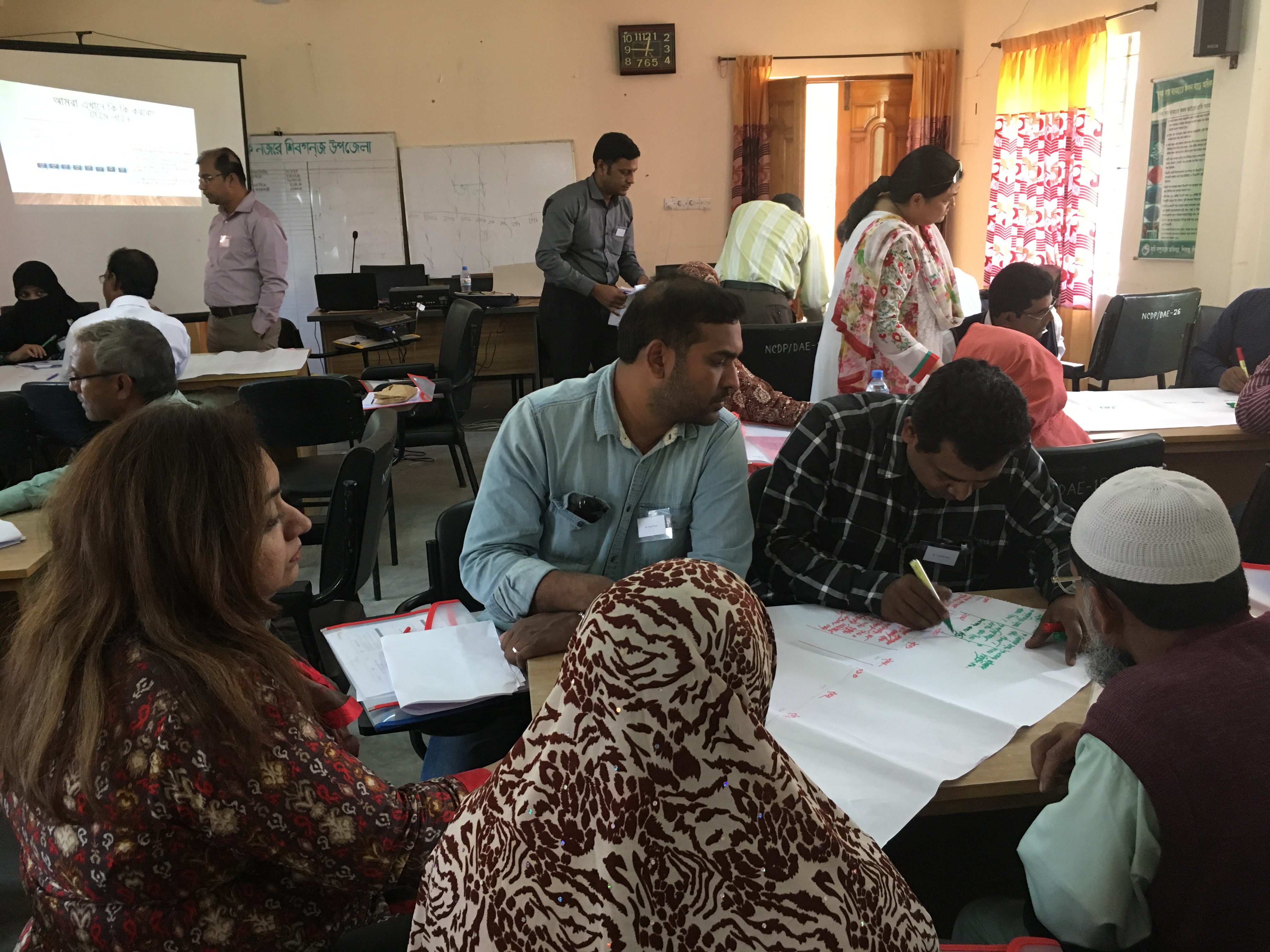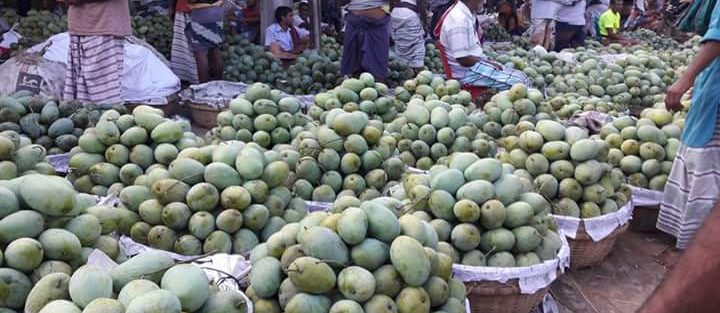
“We must work together to increase mango production”
“We realized that we need to work together, and are now seeing changes happen” said Omar Ali, President of the newly formed Shibganj Mango Association. Farmers and orchard owners saw the need to change when interest in mango production grew after exports to the EU started in 2015. With technical assistance from several initiatives, the first 12 registered farmers began to follow ‘good agricultural practices’. They formed an association now with more than 50 members, and CDAIS is supporting them to strengthen their organization and to achieve their goals by building functional capacities.”
“Even with a new market and increased demand for our mangoes, we were not able to capitalize on this opportunity”, explained Ismail Khan, a young farmer who is pioneering mango exports in Bangladesh. “But thanks to CDAIS, we realized that we needed to learn how to engage in strategic and political processes.” He added “and the capacity needs assessment workshop helped us to see the bigger picture and understand that stakeholder partnerships are very important in addressing our production and marketing constraints.”
There was also a lack of collaboration among various government departments and other actors in the mango value chain that added to the difficulties faced by farmers. And together, they decided that to increase exports, they must work together to solve the issues. And CDAIS arrived at the right time, and is offering just the right sort of support that they needed.
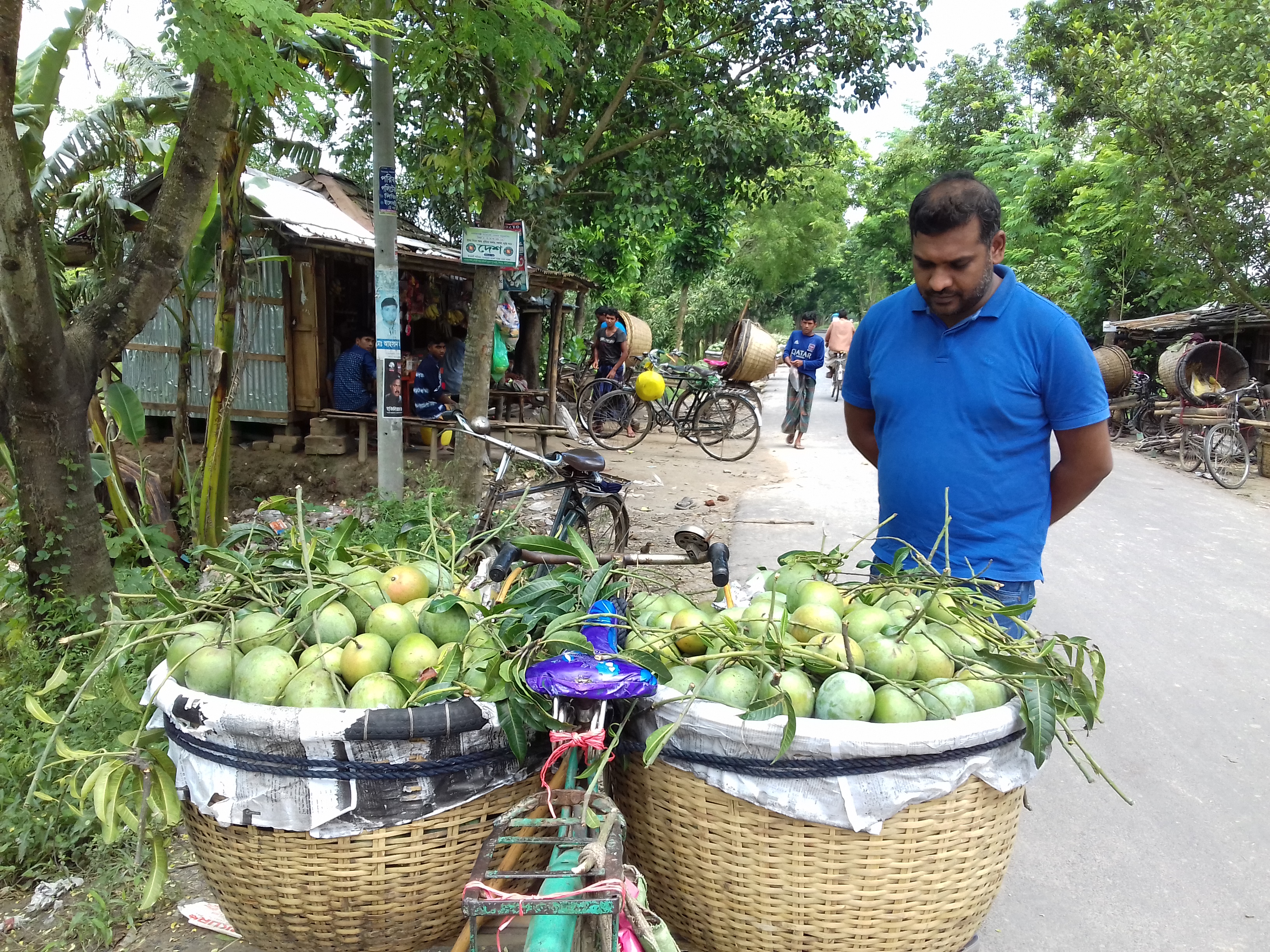
“After the CDAIS workshop, we understood that technical skills are not enough to sustain our business. We also need to build our functional skills to do well in farming.” Ismail Khan, farmer, Shibganj
Mangoes in Shibganj
Bangladesh is the eighth largest mango-producing country in the world. In 2014-2015, 10 million tonnes of fruit was produced; of which 1.5 million tonness were mangoes. Due to the nutritional value and their popularity, mangoes are considered as a high priority for national food security. But they are also an important commodity crop, and production has increased considerably in recent years due to multi-cropping.
Production is concentrated in certain areas, and in the 2015-16 growing season almost half of all production came from just two districts, Rajshahi and Chapainawabganj. In the latter, mango is one of the most important cash crops, and in Shibganj sub-district (upazilla), most people are involved in mango production and trade, with 13,500 hectares producing 120,000 tonnes annually. And the combination of many varieties means that there is supply throughout the whole season from mid-May to the end of September. Many orchards are more than 100 years old, but farmers had not yet organized themselves into groups to consider their interests.
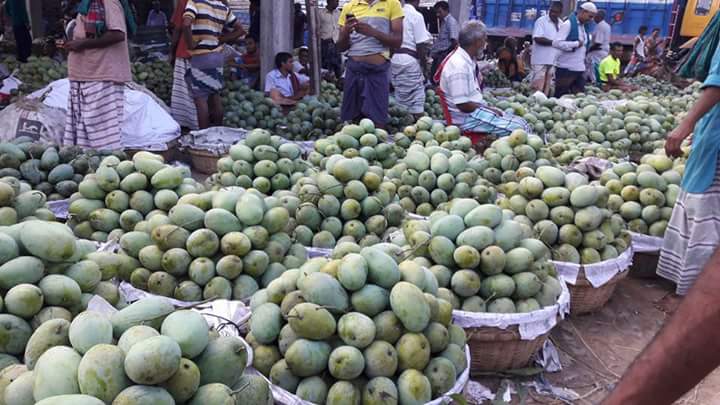
The CDAIS approach
CDAIS activities in the area began with the identification of producer organizations and their capabilities, along with other institutions supporting agricultural innovation. Implementation of CDAIS started with the training of national innovation facilitators to understand the importance of innovation and capacity development, how to use different capacity needs assessment tools and methodologies, and how to develop action plans with producer groups.
Using innovative tools of CDAIS
During the capacity needs assessment, exercises were used that helped farmers to evaluate their position. These included the timeline tool, the problem/solution tree, net mapping, visioning and action planning, and CDAIS supported farmers in learning how to navigate complexity, develop their capacity to collaborate, and improve the ability to reflect and learn. The timeline tool provided information on historical events from 2000 to 2016 related to mango production and trade in the area. The problem and solution tree exercise drew out key problems faced by farmers, and possible solutions. On-going instabilities identified in the mango sector included low yields, pests and diseases, irrigation and transport problems, the high costs of fertilizers, pesticide and labour, lack of knowledge on modern cultivation technology, few processing plants, and poor marketing linkages.
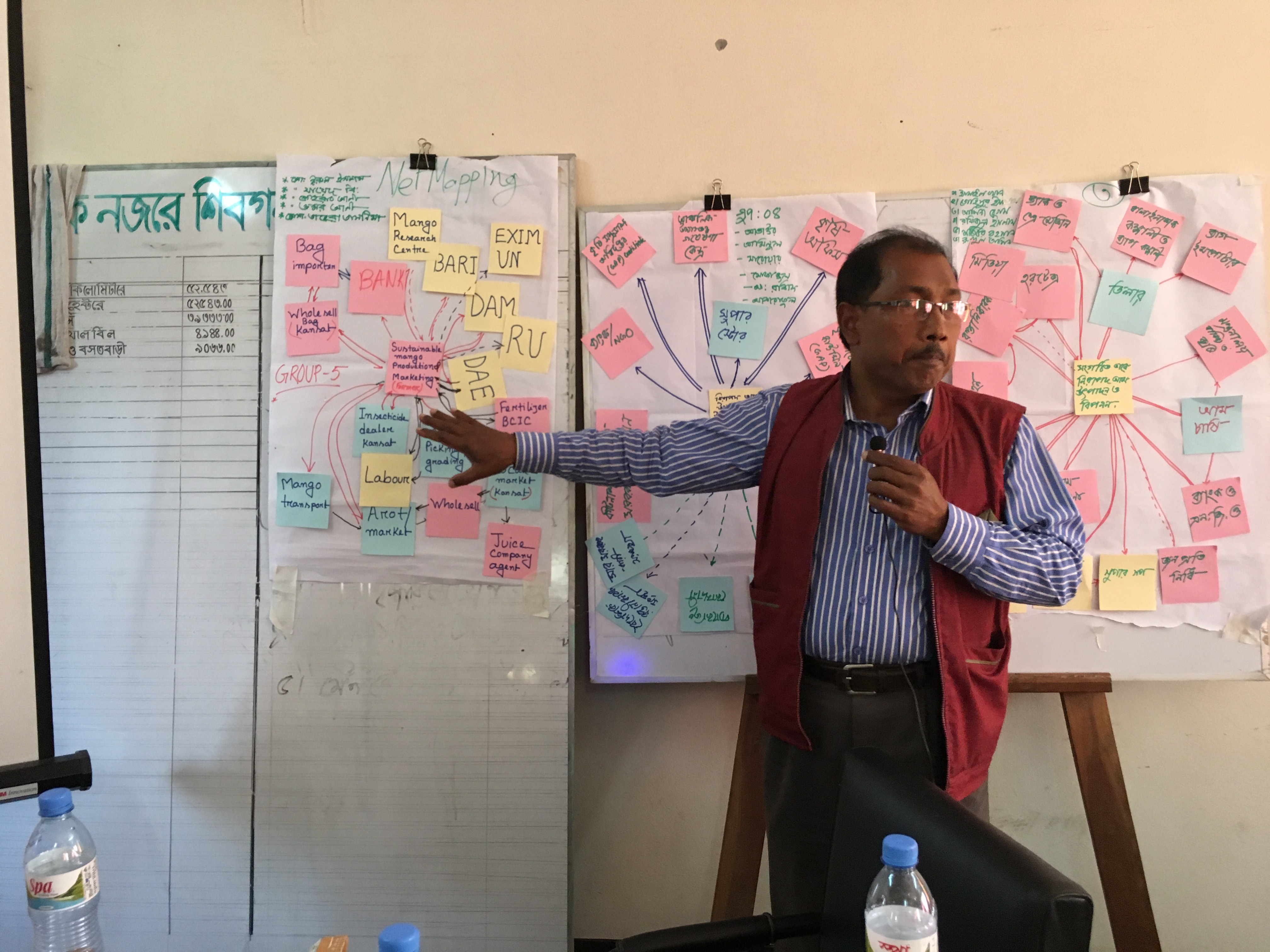
Sharing stories: motivating farmers to set up a multi-stakeholder platform
To overcome some reticence by farmers in Shibganj, CDAIS called representatives from another group that had succeeded, and asked them to share their experiences. Mohammad Mojammel, Secretary General of the Bholahat Mango Foundation came and addressed farmers, unions, NGOs and agricultural extension and marketing officers. He told how they had formed their foundation, developed a dynamic group and made it deliver visible benefits. The presentation had the desired effect, and inspired farmers and other stakeholders to create a ‘mango farmers platform’. “And after the workshop, we understood the need to work together, and gathered 300 farmers to form a platform so their voices can be heard.” said Omar Ali, President of the newly formed Shibganj Mango Association.
“This story from the Bholahat Mango Foundation was an inspiration. I really learnt from Mr Mojammel and I appreciated this initiative from the CDAIS team.” SM Aminuzzaman, Shibganj sub-district Agriculture Officer
Immediate impacts of the CDAIS workshop
Government officials at the capacity needs assessment workshop explained their responsibilities. Then one farmer reported that a trader had not been paying him for a year. The official who issues licenses immediately called the trader, and the very next day the farmer received the first instalment. The benefits of a multi-stakeholder platform were instantly exemplified.
A second issue also showed the added value from working together. The introduction of fruit bagging from 2012 had improved fruit quality and reduced pesticide use by preventing attacks from fruit flies and diseases that would otherwise damage the skin. But due to the high cost of bags and the extra time required to attach them, most farmers did not adopt the technology. Also, the prices farmers received for their bagged fruit even dropped in some cases due to false rumours that it negatively affected fruit quality.
The problem became more serious in 2017 when the national quarantine department restricted exports and farmers and registered firms faced heavy losses. But hope was not lost thanks to the CDAIS workshop, that helped all stakeholders to learn about how to manage such issues strategically and politically. And now, communications are opening up with the quarantine department to solve the problems preventing exports.
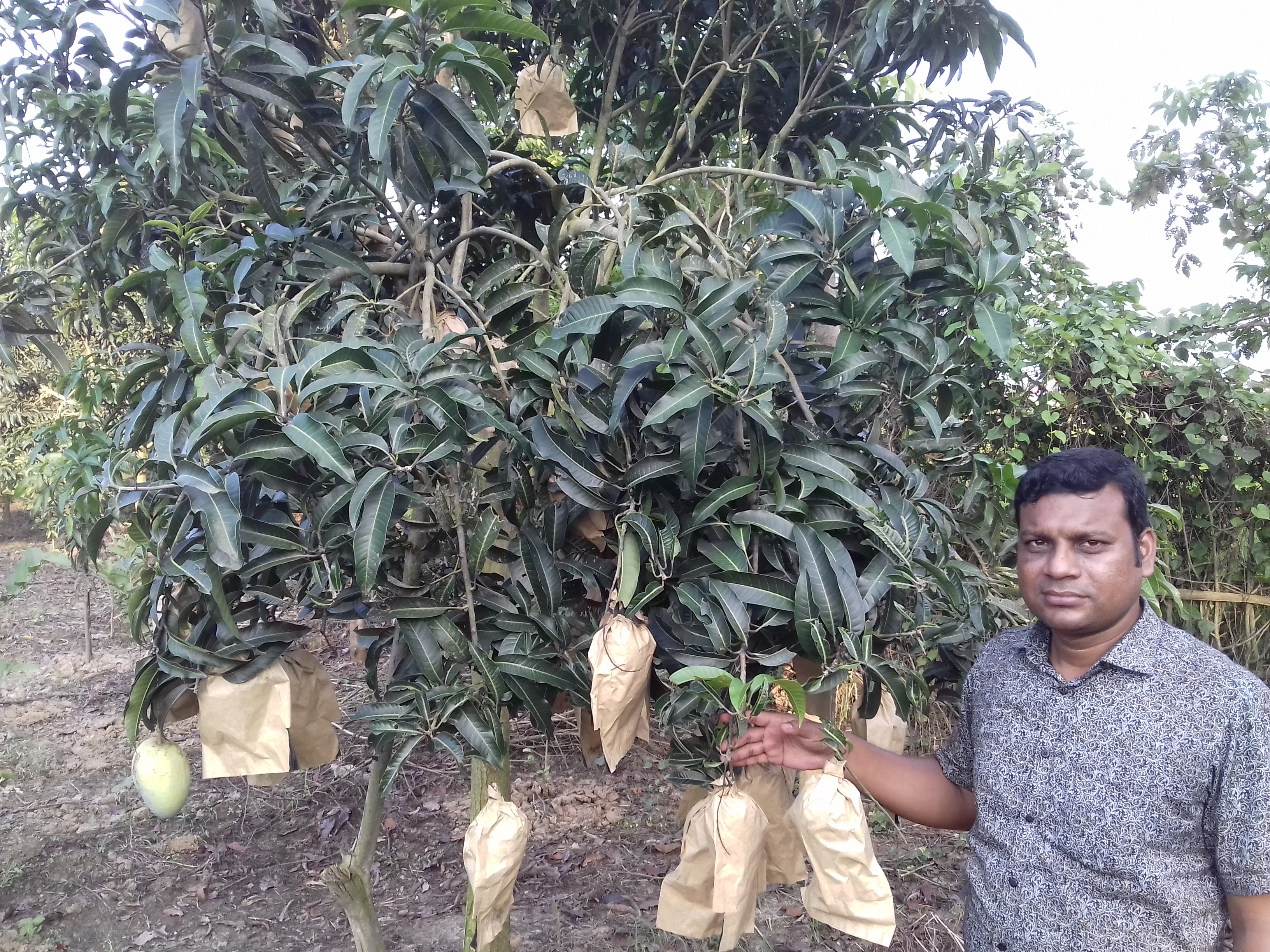
“And the Bangladesh mango value chain needs to be strengthened” said Mr Shamim, General Secretary of the mango platform. “We need dedicated mango marketplaces in suitable locations, the replacement of traditional balances by digital scales to improve trust, and the building of new storage and packing facilities to reduce post-harvest losses. And after this was made clear during the workshop, we then went straight to the District Commissioners office to change the weighing system, and applied for land for a new marketplace.”
Ways forward
But some of the key problems identified in the Shibganj mango workshop require longer-term efforts to ensure the development of sustainable production and marketing systems. Specific technical solutions include the introduction of new varieties, improved irrigation and pest and disease control, better administration and a more organised labour supply.
But it is acknowledged that to achieve these technical solutions requires the development of new skills – soft skills, functional skills – that will allow stakeholder to build partnerships and make the necessary steps. And with support from CDAIS, farmers have developed a coaching plan to help them achieve their aims of producing and selling more mangoes, to strengthen mango multi-stakeholder platform, and ensure the sustainable and diversified marketing of their produce. And as Omar Ali, president of the new mango platform confirmed, “We are confident that what we have learned through CDAIS will help us improve production, exports and farm incomes.”
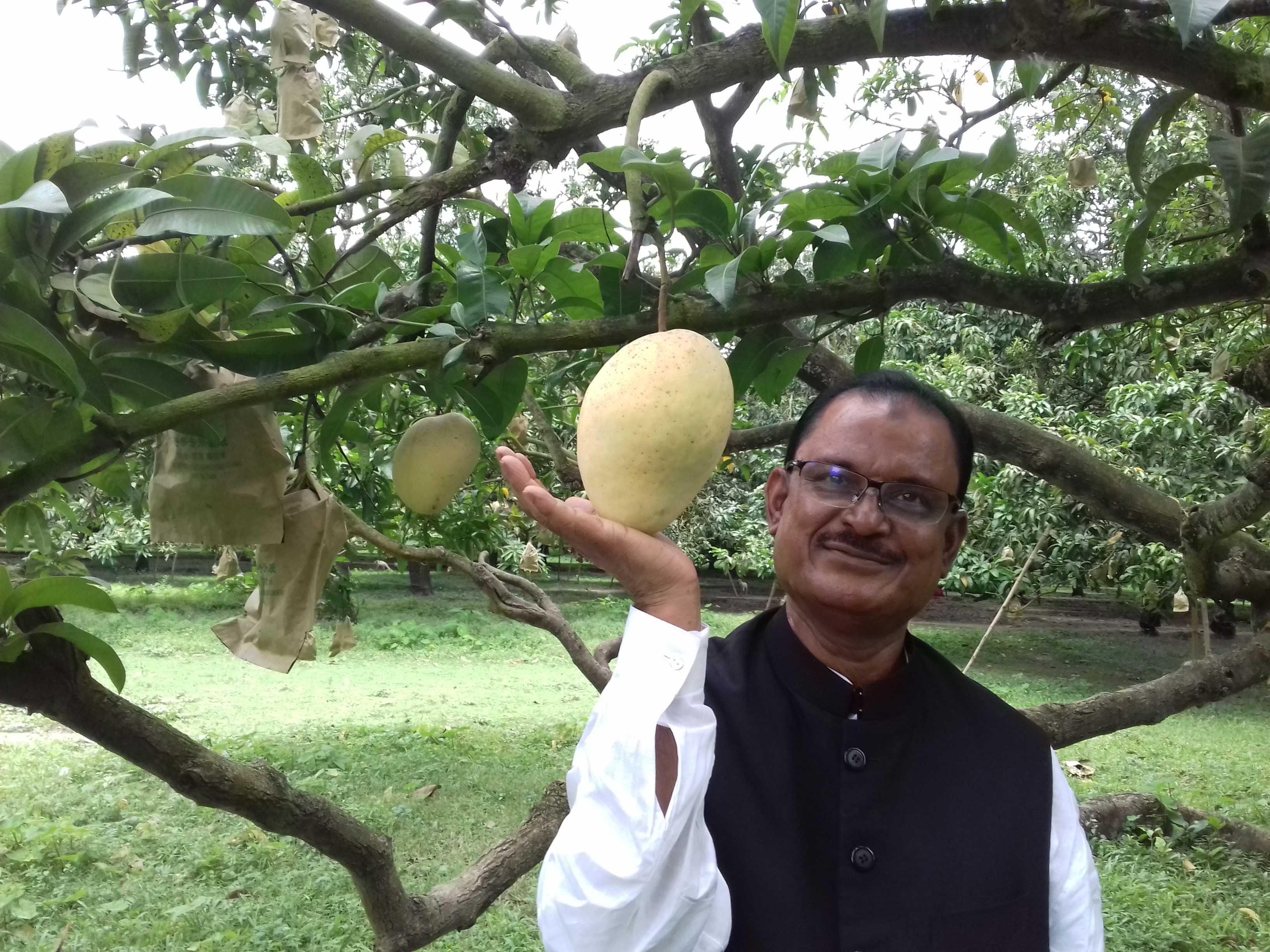
“CDAIS helped us understand the importance of collaboration with key actors in order to move towards achieving our vision of a safe and supported mango industry.” Omar Ali, President of the Shibganj mango platform
Prepared by
Rozana Wahab, Lead national innovation facilitator, Bangladesh rozana.wahab@yahoo.com, +88019 71 63 6666
The mango value chain is one of five innovation niche partnerships in Bangladesh, identified during the scoping study of the CDAIS project. For more information, visit https://cdais.net/home/pilots-countries/bangladesh-3/. CDAIS is implemented in Bangladesh by Agrinatura (represented by NRI), FAO Bangladesh and the Bangladesh Agricultural Research Council, in partnership with other institutions, depending on which of the innovation agendas under consideration.


